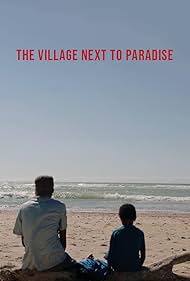A newly formed family faces challenges as they pursue individual goals and navigate the intricacies of modern life, relying on love, trust and resilience to guide them. On a deserted beach, father and son Mamargade and Cigaal enjoy a little bit of happiness in nature, with wind and waves. Such precious moments are few and far between, between the numerous jobs, drone strikes that bring death from the air, checkpoints and wages that take months to arrive – if they arrive at all. In their simple, tiny house made of cinder blocks and corrugated iron, the couple lives with Mamargade’s sister Araweelo. Cigaal dreams of light. Araweelo dreams of making and selling her own clothes. Unmarried, she cannot get a loan, so Araweelo hatches a plan to circumvent the regulations. The risks are enormous. “All my life I’ve been trying to do things better,” says Mamargade, “but I keep making mistakes.” When misfortune overshadows virtually every aspect of daily life, it’s impossible to avoid the “mistakes.” Yet the humble and hard-working trio never give up trying, hoping for luck, their own business, time at the beach, money for school and better days. “The Village Next to Paradise” was first shown at Cannes. “It’s the first film shot on location in Somalia,” said director Mo Harawe, who attended this North American premiere at the Toronto International Film Festival. Harawe worked with the Paradise community to produce the film and employed non-professional actors. The investment in Somalia paid off in terms of the film’s authenticity. The ambient sounds of music on the radio, traffic, waves and wind also added to the realistic character. “Wind is a character,” said Harawe, “so the human characters are never alone.” Culture is also a character and I enjoyed immersing myself in Somali songs, stories and landscapes.




 47/20
47/20